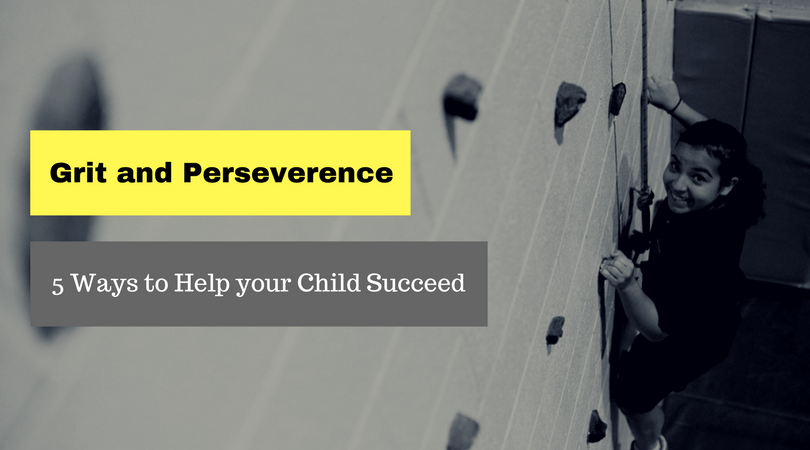Do you remember the last time you set out to complete a task and repeatedly met with obstacles, adversity, and failure? What was your response? If you faced a setback with a renewed determination to achieve your goal, you demonstrated perseverance, and, most likely, you eventually met with success and gained a richer understanding of the issue (and yourself) in the process.
Perseverance is one of two defining characteristics of grit, (the other is passion), a quality consistently found to be correlated with success and fulfillment. Robb Gaskins, Ph.D and Head of Benchmark School shares strategies parents can use to help their children succeed with perseverance and grit.
How can we help our children develop perseverance?
1. Engage in deliberate practice. It is commonly understood that investing a great deal of time in practice will result in continual progress. While practice is essential to improvement, and more is better than less, extensive hours of practice will not necessarily make us experts. In fact, practice rarely makes perfect. Research indicates that what truly sets experts apart is not simply that they practice far more than the rest of us, it is that they practice differently. If the goal is excellence, you don’t just need 10,000 hours of practice, you need 10,000 hours of the “right” kind of practice – practice that focuses on strengthening performance by addressing areas of weakness and helping you stretch beyond your current level of ability.
2. Clearly define a stretch goal. Create a measurable goal to address a specific weakness in the area you seek to develop.
3. Give practice full concentration and effort. Exert full concentration and maximum effort during deliberate practice. Guard against simply logging hours mindlessly.
4. Obtain a Mentor. A critical aspect of pursuing excellence in any domain is having a coach or mentor to guide one’s progress. A mentor can be a parent, teacher, or other respected individual who can not only model expertise but also carefully direct training toward a desired goal. The type of support the mentor provides depends on the child’s stage of development. Beginners require a focus on encouragement and praise along with a bit of gentle correction. As children become more advanced (and thereby possess greater confidence and commitment), they require a greater focus on the development of their weaknesses through specific and immediate feedback. As children advance, gifted mentors continue to provide support, care, and respect in addition to setting high standards. This support is not only demonstrated through their words, but also their non-verbal communications and actions. An excellent mentor will also reinforce the correlation between hard work, perseverance, and success throughout the process. In all of these ways, mentors help our children develop perseverance while they are developing excellence.
5. Become part of a group that is committed to excellence. We are social beings; when we see that our peers are committed to high standards, we begin to internalize the norms that support excellence. At the same time that the group supports the growth of its members, each member of the group also pushes the rest of the group to higher levels of achievement through commitment to consistent improvement. This continually-evolving culture of excellence not only demands perseverance as the collective bar is consistently raised, but also supports and celebrates it.
Benchmark School, located in Media, PA, is committed to helping bright students in grades 1-8 who learn differently, or have yet to reach their academic potential, develop the confidence, strategies, and knowledge to become lifelong learners, thinkers, and problem-solvers. For more information please visit https://www.benchmarkschool.org/

